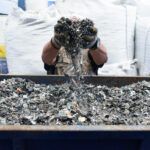Interview with Gus Speth: Communicating environmental risks in an age of disinformation
By Bulletin Staff | July 19, 2011
For more than four decades, Gus Speth has been a major figure in the modern environmental movement — a movement that he now says is failing. He has worked within nonprofit activist organizations, government bureaucracies, and academia, and moves easily between these realms. In 1970, as a newly minted environmental attorney, he cofounded the Natural Resources Defense Council, which today has a staff of more than 300 lawyers, scientists, and policy experts. In 1982, he founded the World Resources Institute, an environmental think tank. His work as a government insider began during the Carter administration, when he chaired the US Council on Environmental Quality and oversaw The Global 2000 Report to the President — a landmark study that accurately forecast the twenty-first-century problems of global warming, energy scarcity, loss of biodiversity, and a global economic system at odds with finite natural resources. Speth later served as a senior adviser to President-elect Clinton’s transition team, heading a group that focused on natural resources, energy, and environmental issues. From 1993 to 1999, he was Administrator of the United Nations Development Programme and chair of the UN Development Group. Speth has also worked in academia, where he remains today. He was a professor of law at Georgetown University in the early 1980s, the dean of the Yale School of Forestry and Environmental Studies for a decade, and is now a professor at the Vermont Law School. He is the author, co-author or editor of six books, most recently The Bridge at the Edge of the World: Capitalism, the Environment, and Crossing from Crisis to Sustainability (Yale University Press, 2009). He spoke to the Bulletin about why environmentalists and scientists have been unable to win public support for tackling issues such as climate change and about the fundamental political and economic changes he now advocates.
BAS: What would you consider the most serious threat to human and environmental health in 2011?
Speth: Climate change is the biggest issue today, and it may be the biggest issue we’ve ever faced. But there’s something deeper and bigger going on in our society. To single out a bunch of factors that are specific to climate is almost misleading, because if you look at any of the large-scale environmental challenges that we face, almost without exception we’re still losing ground 30 years after The Global 2000 Report was published. Many of the dire predictions in there, of what would happen if we didn’t act to correct the problems, have come true. Maybe most of them.
Even the United States, the world’s wealthiest country, has been losing ground on a host of international indicators — not just environmental indicators such as carbon dioxide emissions and water consumption but also quality-of-life indicators such as life expectancy and poverty rates and economic inequality. The problems run deeper than environmental neglect. The United States is neglecting just about everything that is truly important, and as a result the country is at or near the bottom in 30 major areas among its 20 peer OECD [Organisation for Economic Cooperation and Development] countries.
BAS: Scientists have been warning about climate change for decades now. Why doesn’t the message seem to be getting through?
Speth: One reason is that these are not backyard issues for people, like the issues of the 1970s. Today’s issues are not slapping people in the face, for the most part. They tend to be remote in time and space from the everyday lives of people, unlike the issues of the 1970s: air pollution and water pollution.
Another big factor, of course, is that issues such as climate change are a lot more complicated than some of the more acute issues of the 1970s, but we surmounted these difficulties once. We had a significant period around the time of Al Gore’s “Inconvenient Truth,” during which almost anybody would tell you that action on climate change had become virtually inevitable. Climate change was on the cover of almost every national magazine, and things really looked quite hopeful. Both President Barack Obama and Secretary Hillary Clinton campaigned in 2008 with bold plans, and indeed the House of Representatives actually passed a climate bill that was well worth having. At the end of a 30-year period of doing nothing, we finally had a national consensus for action.
BAS: So what happened?
Speth: A reaction was manufactured, in my judgment. The reaction consisted of building up a lot of fear that action on climate was going to create huge government; that it was going to drive up energy prices further; and that it was going to make recovering from the recession far more difficult. This was a well-financed disinformation campaign that has continued and escalated. Anxiety about acting on climate change was successfully injected into the Tea Party movement; and, as a result, a large percentage of the Republicans who came into office after the 2010 election were people who were on the record as climate deniers, and now the Congress is full of these people.
BAS: How should the Obama administration have responded to climate deniers?
The full contents of this article are available in the July/August issue of the Bulletin of the Atomic Scientists and can be found here.
Together, we make the world safer.
The Bulletin elevates expert voices above the noise. But as an independent nonprofit organization, our operations depend on the support of readers like you. Help us continue to deliver quality journalism that holds leaders accountable. Your support of our work at any level is important. In return, we promise our coverage will be understandable, influential, vigilant, solution-oriented, and fair-minded. Together we can make a difference.
Topics: Climate Change, Opinion















